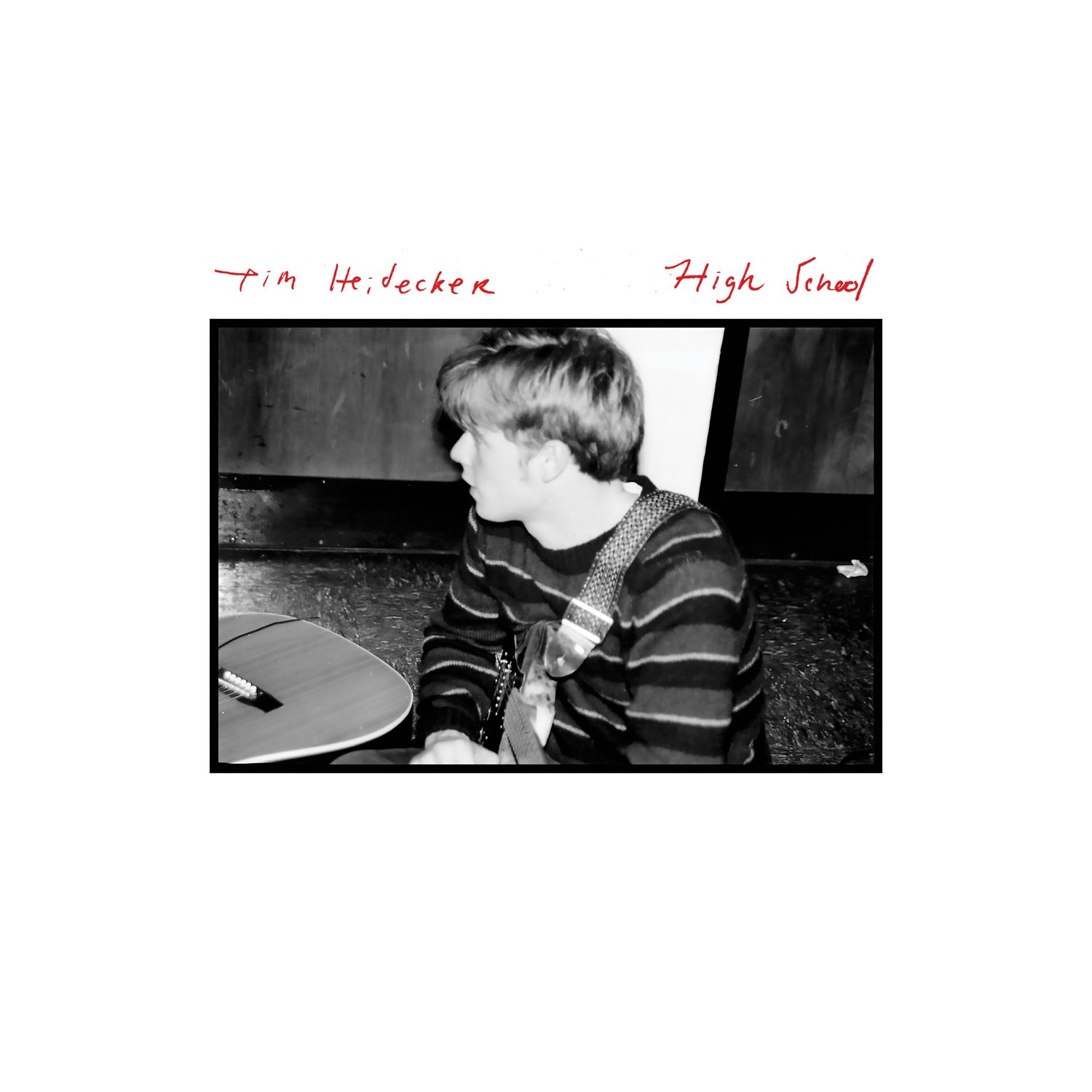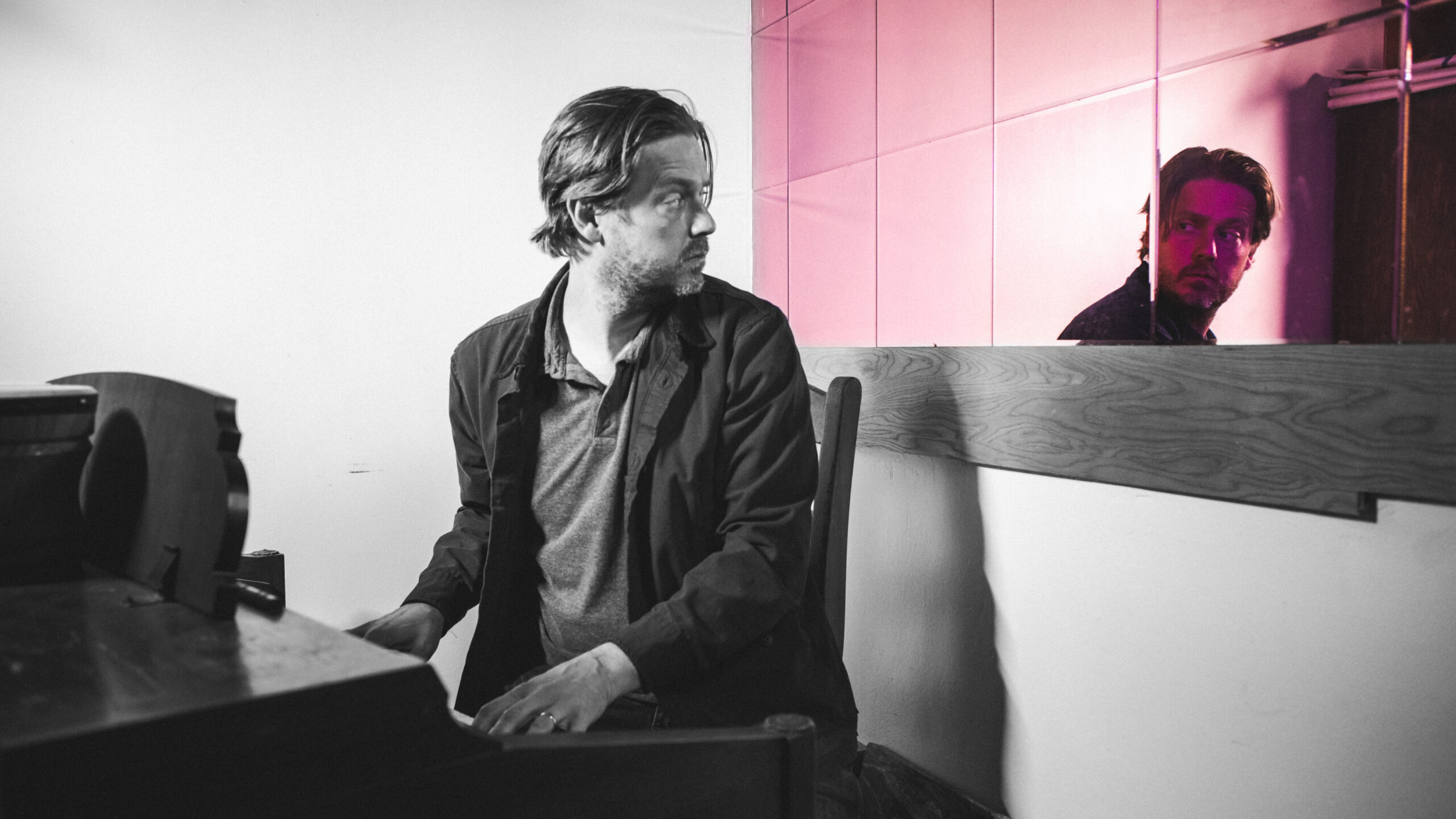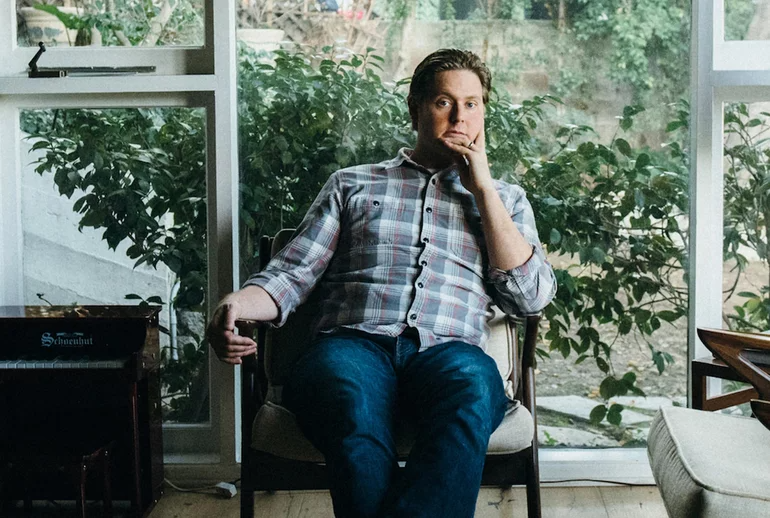Brady – You Sleep While They Watch | Album Review
/On some level, it would be a disservice to call Brady “Greet Death 2.0,” given that the only shared member between the two projects is vocalist/guitarist Sam Boyhtari. Even still, Boyhtari’s voice is so unique that, when placed over a heavy stoner rock rumble, it’s hard not to hear similarities between the two. If anything, that comparison is a high compliment, given that I love Greet Death more than any reasonable person should. The Michigan shoegazer’s latest release, New Low, saw them growing sonically, artistically, and literally as bassist Jackie Kalmink joined, rounding the group out to a solid four-piece. As expected with a band as good as Greet Death, the results paid off in a phenomenal collection of songs that sprawl into multiple exciting new directions. That said, for die-hard fans like myself, the EP’s mere 21 minutes was not enough. I wanted to be immersed. I want to live in Greet Death’s world. That’s why I was pleasantly surprised with You Sleep While They Watch, it came out of nowhere and offered a more full-length way to scratch that itch.
The elevator pitch for the band is taking Boyhtari’s distinctive croon and miserablist sensibilities, but placing them over something new, independent from his other project. Fans of Greet Death will still feel at home here, as most of the LP hovers around a baseline heavy rock sound. What’s surprising is just how much Boyhtari has to say and how he presents it. In Greet Death, there’s a focus on molten guitar licks, and an assumed nihilistic viewpoint that comes standard issue for most shoegaze bands. Here, Boyhtari reveals more about his inner workings than ever before. The songs feel more like dispatches from distant but familiar corners of our world, with Boyhtari directly reporting things he sees and then telling us how they affect him. Throughout the process, we’re let further behind the curtain than Greet Death has ever allowed.
Much like the writing on his other project, songs like “Radon Blues” still center around a catchy but ultimately abstract phrase that listeners can either project their own interpretations onto or simply treat as an earworm. But to really understand this record, one should experience it front-to-back in full. On one end of the album, you’ll find “Twist The Knife,” a sludgy opener that drives a fish hook into the listener, keeping them entranced for the remaining 40 minutes. At the tail end of the LP, you’ll find a cathartic payoff in the record’s crown jewel, “Catherine.” But let’s start at the very beginning.
“Twist The Knife” begins by depicting a scarred but ultimately true relationship. In just a few lines, this song deftly captures what it feels like to exist in love within the crumbling utopia of 2022.
Let’s go for a drive
Scratch our names into the weeping night
Under lidless skies
Kiss me beneath the neon lights
Everything is fine
In the shadow of the great high-rise
Love will never die
I believe that’s what they’ll advertise
In this opening verse, the jagged edge of commercialism literally overshadows love. There’s both a desperation and an immediacy to the way our narrator describes this situation. The feeling of holding on to love for dear life is palpable, the crass indifference of the world threatening to undermine the very foundation of its connective power at any moment.
The second verse of the song moves on to equally hefty topics, alluding to police brutality and the larger sense of cultural unease that we have all felt in recent years.
Lyrically, both “Family Photos” and “Future Now” play out like protest songs. The former finds itself mired in the serialistic violence embedded in the fabric of our culture. It lays out a litany of offenses and violent imagery, eventually breaking off into a searing guitar solo. “Future Now” also reads like a revolutionary text, especially as it ends with Boyhtari repeatedly shouting “NOW!” over a triumphant and proggy rock riff.
Just as signaled by the title of Dixieland, you can still tell that Boyhtari has spent most of his life growing up near the car capital of the world. Roughly half a dozen references to specific car brands are sprinkled through these songs, giving the lyrics a sort of inescapable commercialistic bent. References like these, and even individual terms like “footage” and brand names like “Red Bull” poke out of the lyrics, granting Boyhtari an impressive economy of words. The best example of this is found on ”Power Suck,” where a bar like “Ford-tough, fucking clown” does so much with so little. In just four words, you can picture the exact kind of person Boyhtari is disgustedly writing about.
My personal favorite example of this descriptive power comes in “Catherine,” as our narrator recounts an acquaintance making a racist comment, getting called out, and going back to Bloomfield Hills. If you’ve never lived in Michigan, Bloomfield Hills is essentially the wealthiest, most upscale neighborhood in Metro Detroit, perched about 30 minutes outside of the city proper. It’s very white, very rich, and (surprise) very racist. While you can probably pick that up via context clues, anyone in the know will probably get a quick laugh and a quick read of what kind of person this is. This allows Boyhtari to paint a surprisingly immersive scene and populate it with very specific characters, all with a single phrase.
There are also telltale signs of fascism found throughout this album. There are references to incarceration, SWAT teams, high school drug-sniffing dogs, and police shootings. It’s an unflinching look at our world, crystallized, and reflected back at us through a warped, smoky funhouse mirror.
Smack dab in the middle of the tracklist, “Power Suck” is a dustbowl crusher that gives off the same feeling as a Protomartyr track. The song’s lyrics eventually arrive at the name of the album, which Boyhtari prods the listener with a few times, provoking them into a meditative trance as the instrumental slowly unwinds.
While it’s not all veiled condemnation and provocations, by the time “Big Future” rolls around at the record’s midpoint, It’s easy to find yourself disarmed. On my first listen of this song, as the lyrics were laying out lines like “I believe in the ease of destruction,” I realized that, up until this point, I had no idea what this guy actually believed in. You can tell a lot about a band through their lyrics, stage presence, and online interactions. Greet Death have always placed an emphasis on embodying a sort of nihilistic outlook above all else. They literally have an album called New Hell; you don’t go there expecting upbeat pop songs. Greet Death is also a very funny band whose stage presence deliberately undercuts the crushing weight of their music. My point is I’ve spent years following this band, hundreds of hours spinning their music, and I couldn’t tell you one concrete belief that Sam Boyhtari holds. That’s okay, I can make a fair number of assumptions based on the evidence, but it’s fascinating to hear him lay things out clear as day on this song.
These statements of personal belief are punctuated by a chorus that just oozes a sort of jangly new wave sensibility. By the end of the seven-minute cut, Boyhtari breaks into an artsy staccato delivery before throwing to a rolling instrumental that allows Kacey Keith’s hard-knocking bass to take center stage.
By this point in the record, you’re pretty deep in the band’s dark desert trance. It’s here where they expertly embed “Radon Blues,” a master class in melody that could have easily fit in on the hypnotic back-half of New Hell. Much like “Entertainment,” this song begins with a lackadaisical strum before majestically picking up into a full-band trot. This picturesque instrumental keeps pace underneath flashes of evocative single-line poetry. Once the song’s title is introduced, the band drops back to just the guitar, now plucking a gorgeous, arid riff for a short instrumental break. After a bleak middle section, “Radon Blues” launches into a beautiful passage with a transfixing climax that rivals the best Greet Death song.
From here, it feels like the album could go anywhere. What the band opts for is a rumbling and meditative two-minute instrumental called “Black Horse.” Presumably the figure depicted on the cover, this track is haunted and dusty, rumbling with a dark unease like a Hex-era Earth track. This instrumental paves the way for the epic 9-minute closer “Catherine.”
As mentioned above, “Catherine” is yet another song concerned with overtly heavy topics. While Greet Death tend to be mired in over-the-top hellish metaphors, this song directly depicts the new hell happening on earth every second of every day. A family death and reverberations of addiction. A local police shooting and unmistakable traces of racism in your community. One by one, these scenes play out, pass by, and wash over the listener, burying them in a weighted blanket of anxiety and dread. The lyrics essentially jump back and forth between the details of this police shooting and the aftermath of a family death, interweaving the two stories and urging the listener to connect parallels in the process. In one of Boyhtari’s most overt lyrics ever, he roots the song in proper nouns, memorializing Hakim Littleton with sorrow as he plainly states,
I called my sister back, July 10th
She just got home from a protest
Another cop just shot a young man dead
He was twenty, his name was Hakim Littleton
Halfway through, the song drops out to just the guitar, allowing Boyhtari to deliver the story's pivotal moment at his aunt’s funeral.
And at the funeral I was weak
Not because the body stared at me
But from the father’s homily
When he said that she had achieved something
That she found beauty, she found peace
She was giving, she had everything
I watched them lower her deep
And couldn’t help but think she left us nothing
Immediately after these sentiments, a squeal of guitar feedback kicks up, along with a slow drum build. As the instrumental mounts and the static swirls, you can practically feel the edges of your vision go dark. Just as the abyss begins to circle, a guitar solo erupts, ensnaring the listener and dragging them down into the depths. For the next two minutes, the band takes turns building around this instrumental, stretching the bounds of the song into different directions before disintegrating into feedback and tapering off for the album’s final 60 seconds.
It’s a gorgeous, all-encompassing song and a powerful thing to take in. “Catherine” is an odyssey that exhausts you and also acts as a firm period mark on one of the best debut LPs I’ve heard in a long time.
While Greet Death offers a borderline-Doomer examination of feelings (or lack thereof), Brady is more like a series of observations. Gradually, the inner workings of our narrator are revealed, ultimately arriving at this dual-pathed narrative in the final song that offers little resolution but lots of catharsis. And I don’t mean to keep comparing the two projects; it’s just such a knee-jerk reaction as someone who’s already a fan.
There is a host of talented musicians behind Boyhtari, and I cannot give enough credit to how well the group collectively fleshed out such a defined corner of the heavy music world. If Greet Death is a project about depicting hell on earth through veiled analogies, Brady is an unflinching look at that same reality with a slightly more realist lens. These lyrics lean into abstraction in a unique way that allows Boyhtari to shine as a songwriter. These songs extend off nicely into the Greet Death extended universe, but still feel like a distinct ecosystem that works towards the same goal from a different angle. Even though, at times, the outlook of both projects is equally dismal, sometimes it’s just nice to hear another side of someone you’ve spent so much time listening to. You Sleep While They Watch offers a more profound insight into one person's semi-hopeless view of a bluntly-hopeless world.
Whether it’s Greet Death or Brady, the seminal question at the center of Boyhtari’s work has always been, “how do you continue despite it all?” Throughout this album, Boyhtari finds solidarity in admitting he doesn’t have a grasp on the answer any more than we do. At least we’re in it together.













